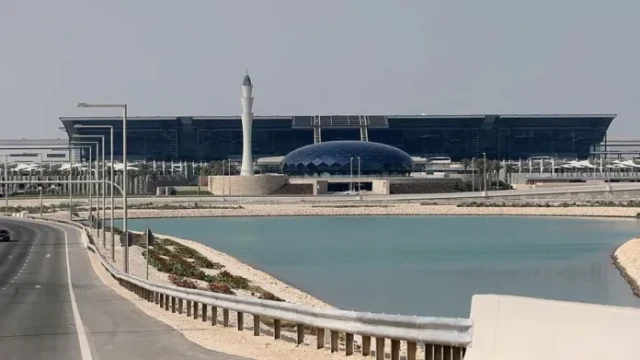In a swift move to safeguard lives and property, the government of Qatar has closed its airspace following a missile attack by Iran on the U.S. military installation, Al-Udeid Air Base, located in Doha, the Qatari capital.
The airspace closure, announced by Qatar’s Ministry of Foreign Affairs, comes amid heightened tensions in the region after Iran vowed to retaliate for a recent U.S. airstrike on three nuclear facilities in its territory. The ministry explained that the decision was taken to ensure the safety of residents and visitors within Qatari territory.
The United States and United Kingdom embassies in Qatar had earlier issued advisories urging their citizens to exercise “increased caution” in response to rising hostilities. The U.S. Embassy warning was echoed by local institutions, including several universities, which instructed students to return home amid concerns of escalating unrest.
Despite the airspace closure, Qatar’s Ministry of Foreign Affairs reassured the public that the country remains stable and under close surveillance by security agencies. “The security situation in the country is stable,” the ministry said in a separate statement. “Relevant authorities are closely monitoring developments and are prepared to take all necessary measures to ensure the safety of citizens, residents, and visitors.”
Al-Udeid Air Base is the largest U.S. military installation in the Middle East and hosts about 8,000 U.S. personnel. It also serves as the forward headquarters of U.S. Central Command (CENTCOM), which oversees American military operations across the region. British military personnel also serve at the base on rotation.
The recent attack and the resulting tensions have disrupted air traffic in the region. Flight tracking data from Flightradar24 shows multiple flights bound for Doha being rerouted. The country’s main airport, Hamad International Airport—ranked among the world’s ten busiest for international traffic—normally sees about 140,000 passengers daily.
According to the U.S. State Department, around 8,000 U.S. citizens reside in Qatar. British Foreign Secretary David Lammy, addressing Parliament, confirmed that the security situation is being closely monitored and that travel advice for British nationals in Qatar may change in the coming days. “This is an ongoing and fast-moving situation,” he said.
Despite the current tensions, bilateral ties between the U.S. and Qatar remain strong. Washington continues to view Doha as a key regional partner, citing Qatar’s financial, political, and military contributions to regional stability.
As the crisis unfolds, the international community is watching closely, with concerns that further escalation could disrupt the broader stability of the Gulf region.




















